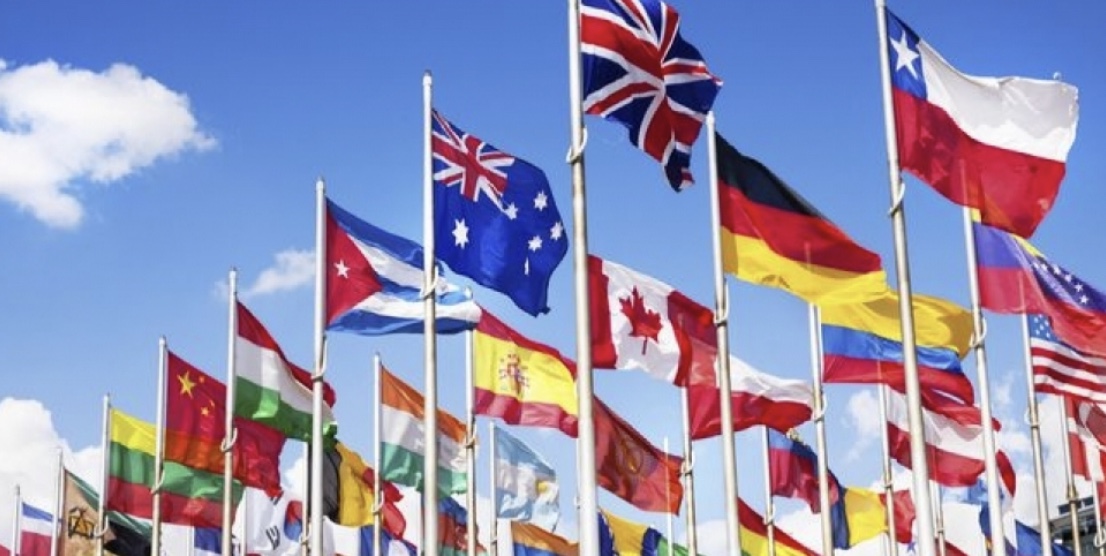(by Giuseppe Paccione) I do not share the opinion of Wesam Ahmad, commentator for the television station Al-Jazeera, who, in his interview with a Italian newspaper, asserts that “behind international law there is the will of the West" and which, therefore, is considered only a mere mask. I remember that each companies has a range of rules that serve to regulate relationships between individuals who are part of it. Even Aristotle, in his work on the Policy, wanted to decipher that man is by nature destined to live in the human community, established for the achievement of some good.
It is not far behind Saint Thomas Aquinas than in his famous work Summa Theologiae asserts that “nihil est aliud quam quaedam rationis ordinatio ad bonum commune” (law is nothing other than an order of reason aimed at the common good). Lastly, how can we not remember that ubi societas, ibi ius, in the sense that law, before being a norm, is an organization. Ergo, international law can not only be considered the common law of the entire human family and the driving force of international social life, but also the legal order of international society characterized by legal norms that are useful mechanisms for regulating the coexistence of the international community with the responsible government authority of each State.
As for the comparison made by Wesam I completely disagree with the fact that international law was used in favor of Ukraine and not also on the Middle Eastern crisis. I'll explain. In the Russian-Ukrainian crisis Russia's conduct is clearly evident, moving from threat to aggression militarily Ukraine, violating international law and United Nations Charter which oblige States to refrain from the threat or use of force against the territorial integrity or political independence of any State. On this point, the entire international community has often called on Putin to respect international law; even the China, which has excellent relations with Russia, underlined the importance of respecting the principle of non-interference in the internal affairs of a state.
In the case of the recent Israeli-Palestinian crisis, it should be noted, (in primis), that Israel is not fighting against the Palestinian people, but against the group of Ḥamās(حركة المقاومة الاسلامية), the Islamic Resistance Movement, considered by the international community to be a non-state actor, but of a terrorist nature. The tug of war is between Hamas e Israel and that the Palestinian population, unfortunately dominated by this terrorist group, has nothing to do with it. Regarding the occupation of Israel, it should be specified that it is true that the Gaza Strip, an integral part of the Palestinian territory, is under occupation, but it should be specified that since 2005 the Israeli army withdrew.
When someone considers international law to be in favor of one and to the detriment of the other, I consider it something truly unacceptable. Let me explain. International law, (in primis) the humanitarian one, he considered the deplorable action di Hamas as an illegitimate act against Israel, such as, for example, breaking the land blockade of the Gaza Strip by massacring defenseless civilians, launching indiscriminate rocket attacks into Israeli territory, direct attacks on civilians or attacks for the sole purpose of sow terror, sexual violence, torture of civilians and, ultimately, the taking of hostages; all prohibited by international law, i.e. by I Additional protocol of the IV Geneva Conventions. These violations give rise to the liability of Hamas although its action is completely illegal and that all members are responsible for war crimes and crimes against humanity. Therefore, international law does not admit or legitimize what was done by this terrorist organization against the citizens of the State of Israel.
Nonetheless, all the same international law makes no concessions to Israel who violated the norms of the international law of armed conflicts, when, after the violent aggression of Hamas, decided on the complete siege of the Gaza Strip through the policy of blocking the entry of foodstuffs, i.e. leading to the starvation of civilians, as a method of war which is coincidentally inhibited by the famous international humanitarian law which expressly prohibits the attack on property essential for the survival of the civilian population such as food and water et al, constituting a war crime. In fact, in Statute of International Criminal Court, the intentional starvation, as a method of warfare, of civilians by depriving them of the goods indispensable for their survival is also included in the sphere of war crimes, including voluntarily preventing the sending of aid provided for by the Geneva Conventions. Another aspect consists in the fact that Israel cannot subject the entire people of the Gaza Strip to collective punishment for an act committed only by the terrorist group Hamas, as is established in the Hague Regulations of 1907 and the Fourth Geneva Convention of 1949. This also applies to the loss of human lives and civilian structures caused by the massive bombings of the Israeli authorities. Tel Aviv must adhere to the criteria of precaution, distinction and proportionality in any military operation in the Gaza Strip, the violation of which may lead to individual responsibility for war crimes.
Finally, it can be found that international law, structured to keep a series of prohibitions considered as cornerstones of the human family, is not the instrument with double standards, but constitutes the guarantee valve to prevent future generations from ending up in the scourge of a new world conflict.
International law, to close my brief speech, is super partes with the sole task of regulating the life and relationships that exist in international society, essentially composed of States, considered subjects of the international legal system.
Subscribe to our newsletter!
